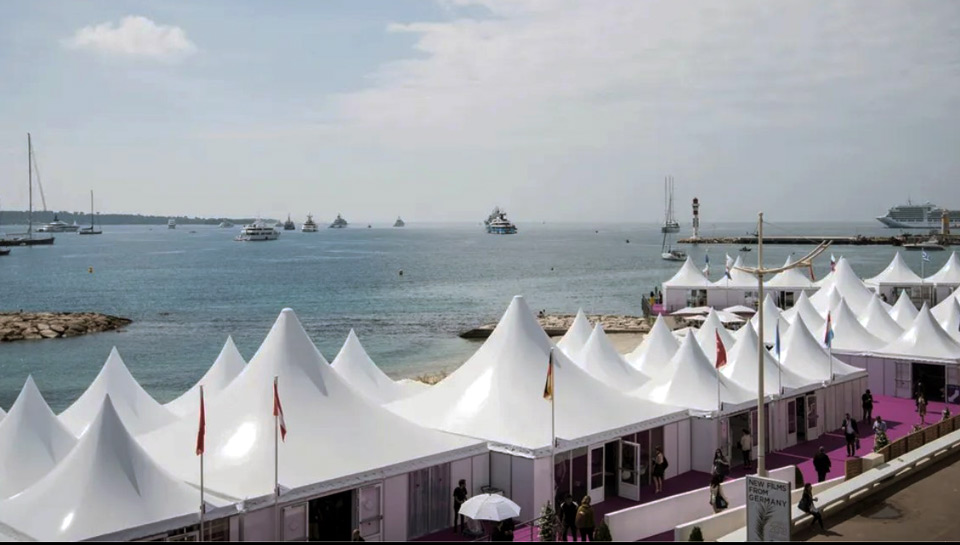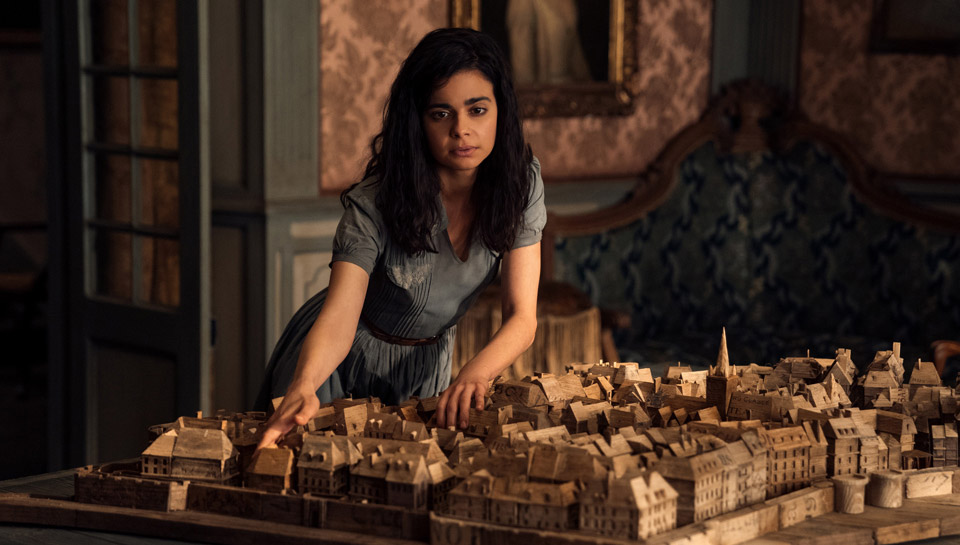What was your role on Atlanta?
I was the line producer, through my company Froggie Production. We specialize in organising foreign shoots in France. In recent years, we’ve been involved in lots of American and British series.
What is the role of an line producer on a foreign shoot in France?
The role involves the organization upstream. The line producer has little or no involvement in artistic aspects. They don't hire a director or a cinematographer. When a production arrives to shoot in France, it already has a script and a cast. Our role is to propose the sets, a technical crew, a work schedule. We liaise with both the producers and the director. In the case of Donald Glover, the creator and lead actor of Atlanta, we were able to have discussions with him, despite his star status. He worked closely with the French first assistant that we brought on board for the project and who prepared the shoot with him. It should be remembered that the production had to be staggered over nearly two years due to COVID. We were supposed to film this episode of Atlanta in May 2020, but we ended up doing it a year later. This meant we had to adapt. We received a number of scripts over time and based on these, we made various proposals. We had feedback, comments, sometimes we had to change tack, find new locations, etc. Up until the time of approval, just weeks before, so that we could take care of the filming permits and authorisations.
So the filming lasted six days during May 2021. How did it go?
Between the cast, assistants, various technicians, we had to welcome around 50 workers from Britain and America. Along with the production director, we also hired 150 French technicians, not to mention the extras. Our role upstream is crucial. After that, we simply ensure the success of the synergy between the French and foreign technicians and that the work schedule is going as planned.
How do you prepare for the arrival of the foreign workers in France?
These are people who are accustomed to moving from one country to another and who expect to be fully taken care of, letting them focus solely on their work. So, you have to prepare everything for their arrival, book their hotels, get them French mobile phones, make sure they have Internet access wherever they are, suggest restaurants for dinner, etc. The crew generally arrives two or three days before shooting starts in order to carry out the final location scouting visits with the assistant director, who explains very exactly what will be happening.
You had a budget of more than €1,750,000 for this episode. Who defined it?
This budget was provided by the US production to organise everything. However at the outset, as the line producer, I establish the requirements based on the script and we prepare an estimate, which is refined as things go forward. We adapt the sets, crew numbers, etc. And then we advise them as we know the industry inside out. When a series like Atlanta comes to shoot an episode in Paris, I know what they expect. I know what their level of requirements, competence and quality will be. I’m able to prepare an estimate that meets their expectations. Our role is also to transpose this French estimate so that it’s understood by our foreign client, as they have other customs and need to assimilate our regulations and our labour laws. Ultimately, the foreign production must leave us with a positive impression of its French experience, with the satisfaction of having shot the scenes they wanted with us. But at the same time, we have to ensure everything is in accordance with our labour laws, our French crews and even the places that we bring them to.
Could you say that there’s a particular French expertise when it comes to hosting foreign shoots?
Yes, I think so. Based on the feedback I've had, French line productions have a better reputation than many other countries. First, we have historic expertise. Americans arrive in France with a respect for the history of French cinema. They know it’s an industry that works, and so they don't have this fear of a lack of competence when they come to film here. Moreover, French technicians are really motivated to ensure that Americans have the best possible experience in France. This is something that producers note. They get a real sense of commitment from these French technicians. Then, there's the impression of having a true partner and not just a service provider. They have that very satisfying impression of arriving at a French extension of their production office.
Besides this expertise, isn’t it the tax rebate on international production (TRIP) that has encouraged many foreign productions to come and film in France?
Yes indeed, it’s clearly an incentive. Before this tax rebate existed, there were really very few foreign film shoots in France. Many only came to film the Eiffel Tower! But things have changed since France got in line with other countries by introducing this international tax rebate. Financially speaking, for the Americans, any country that doesn't offer a tax credit isn't a country where you could seriously consider filming. Now, if they film here for at least 5 days and spend 250,000 euros in eligible costs, they benefit from a 30% tax rebate. It can even be as much as 40% with the VFX bonus if the production has lots of visual effects. Without this measure, Atlanta probably would not have come to Paris. Or maybe just for two days for the outdoor shoots. They would have filmed the indoor scenes at their own studio, at their production base in London.





